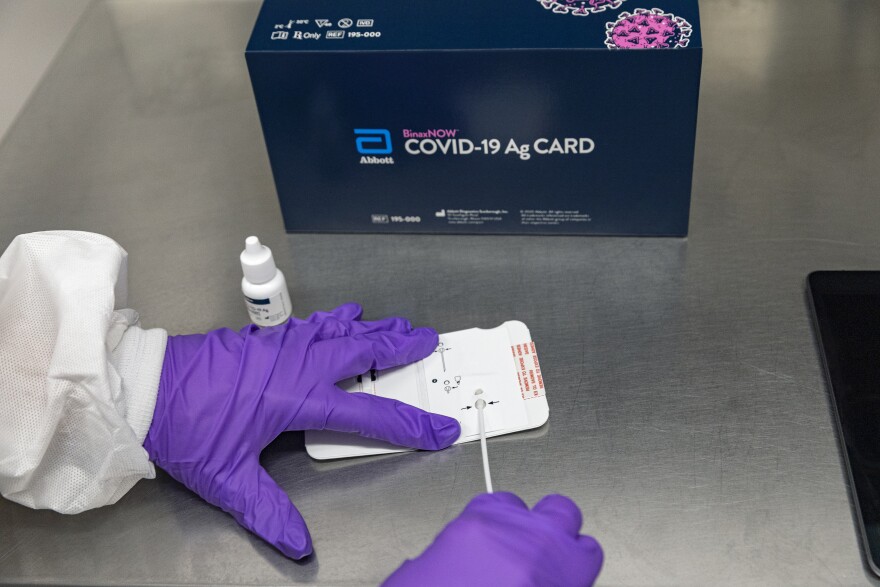Antigen tests are also known as rapid point-of-care tests because they don’t require a lab to produce the results and someone can get an antigen test done conveniently, where they live or work, because the machine needed to process the specimen is on site.
This week, President Donald Trump’s administration announced that Florida’s getting 6,460,000 COVID-19 antigen tests, produced by Abbott, called BinaxNOW. These antigen tests don't require the entire nasal passage to collect the specimen.
"Just the tip of your nose," said Admiral Brett Giroir, a physician who works at the U.S. Department of Health and Human Services on the country’s COVID-19 testing efforts, on a press call. "You swipe five turns on one, five turns on the other. This looks like a card-based test. So you put this swab into the card that you've already put six drops of fluid on. You close it."
WLRN is committed to providing South Florida with trusted news and information. In these uncertain times, our mission is more vital than ever. Your support makes it possible. Please donate today. Thank you.
Then the machine looks for a protein in the specimen specific to this coronavirus.
"It's very similar to what you'd have, a flu test, a pregnancy test," he continued. "If there's one line, the test is valid and you're negative. If there's two lines, the test is valid and it's positive."
The process takes about 15 minutes. Antigen tests produce results quickly, but they're not sensitive tests, so health professionals worry about false negatives.

"You're gonna have false negatives, but you're going to have really fast false negatives," said Dr. Aileen Marty, an infectious diseases expert at Florida International University. "That's the problem."
Antigen tests would need to be used regularly, like daily, to catch people who are positive, Marty recommended. Take a school, where a student might test positive — a typical reaction might be to test all of the other students in the same classroom.
"Well, that’s useless, because all those other kids at that time, on the day that first kid became positive, are very unlikely to test positive with the antigen test," Marty explained. "It's gonna take a few days to build up enough virus in each child's body."
Molecular tests are far more sensitive and likely to catch that someone has the virus in their body, even a low viral load, but these take longer. The specimen usually goes to a lab where technicians use reagents, or chemicals, to amplify the genetic material and look to see if it corresponds with that of COVID-19. Lab turnaround times are improving, but that continues to present a challenge.
Giroir said another challenge is that molecular tests are so sensitive that someone might test positive for weeks, but no longer be infectious.
"Bottom line, there is no such thing as a perfect test. One is not better than the other," he added. "They each have their place in the ecosystem."
Doctors also disagree on whether Florida should depend so much on antigen tests right now as the positive case numbers and the state’s positivity rate have been going up in recent days. The antigen tests are being distributed to places like nursing homes, grade schools and historically Black colleges and universities.



